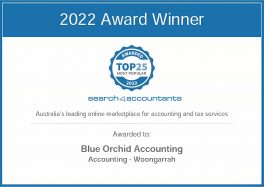A company is a distinct legal entity separate from its shareholders or officers. Consider this structure if you want limited liability but be aware of the strict legal obligations and set up costs.
In this business structure, the company:
- must apply for a tax file number (TFN) and use it when lodging its annual tax return
- is entitled to an Australian business number (ABN) if it is registered under the Corporations Act 2001. A company not registered under the Corporations law may register for an ABN if it is carrying on an enterprise in Australia
- must be registered for GST if its annual GST turnover is $75,000 or more
- owns the money that the business earns – the individuals who control the business cannot take money out of the business, except as a formal distribution of the profits or wages
- must lodge an annual company tax return
- usually pays its income tax by instalments through the pay as you go (PAYG) instalments system
- pays tax at the company tax rate or lower company tax rate (if a base rate entity)
- may be eligible for small business concessions
- must pay super guarantee contributions (SGC) for any eligible workers. This includes you, if you are a director of the company, and any other company directors.
So in Australia, the most common types of companies are:
- ‘Proprietary Limited’ companies (cannot raise money from the general public through share issues)
- ‘Public’ companies (usually formed to raise or borrow public money by listing the company’s shares for trading on a stock exchange).
All companies are governed by the Australian Securities and Investments Commission (ASIC), which administers the, which administers the Corporations Act 2001 (Commonwealth) and other legislation. Public companies must also comply with the rules of the Australian Stock Exchange.
NOTE: Companies and directors have key legal and reporting obligations they must comply with. Some of the more common obligations include: - update ASIC within 28 days of key changes to company details
- keep financial records
- understand and comply with all your obligations as a director
Advantages of a company include:
- liability for shareholders is limited
- it’s easy to transfer ownership by selling shares to another party
- shareholders (often family members) can be employed by the company
- the company can trade anywhere in Australia
- taxation rates can be more favourable
- you’ll have access to a wider capital and skills base.
Disadvantages of a company include:
- the company can be expensive to establish, maintain and wind up
- the reporting requirements can be complex
- your financial affairs are public
- if directors fail to meet their legal obligations, they may be held personally liable for the company’s debts
- profits distributed to shareholders are taxable.













